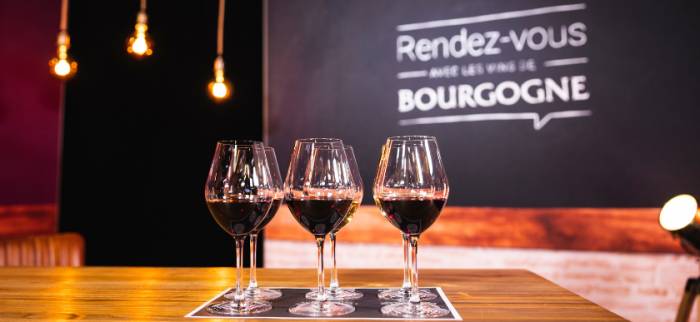Bourgogne Wine Board Secures Major Funding for Climate and Disease Resilience Initiatives
New programs target sustainable vineyard practices and adaptation to climate change, aiming to safeguard the region’s winegrowing legacy
2025-10-08

The Bourgogne Wine Board (BIVB) has secured €700,000 in funding to support two major programs aimed at preserving the region’s winegrowing heritage. The funding comes as the Bourgogne wine industry faces increasing pressure from climate change and evolving societal expectations regarding the use of phytosanitary products. The French Ministry of Agriculture and FranceAgriMer have already pledged their support for these initiatives, which are being developed in collaboration with local wine merchants and estates. The BIVB has committed to at least five years of support for these efforts.
The first program, known as PARSADA, is part of a broader national plan launched by the French government in 2023. The plan allocates €146 million over five years to help agricultural sectors find alternatives to traditional phytosanitary products. The guiding principle of the initiative is “no ban without a solution.” PARSADA focuses on combating downy mildew and black rot, two diseases that threaten northern French vineyards and can cause significant crop losses. The project is being carried out in partnership with other major French wine regions, including Bordeaux, Champagne, Cognac, Alsace, and the Southwest.
In Bourgogne, PARSADA builds on work that began in 2016 with the region’s Winegrowers’ Organization (CAVB). A new regional technical unit has been established to support these efforts. Over the past six years, the use of biocontrols in vineyard treatment schedules has increased by more than 200% since 2019. By 2024, 68% of surveyed winegrowers held environmental or corporate social responsibility certifications, and 25% were certified organic or in the process of conversion. These figures come from surveys conducted with the CAVB, local Chambers of Agriculture, Bio Bourgogne-Franche-Comté, and cooperative cellars.
PARSADA aims to provide winegrowers with risk forecasts and preventive measures to help anticipate and manage the spread of downy mildew and black rot. The program will also help limit the use of chemical treatments. The BIVB will spend five years building and coordinating a regional network of technical advisors specializing in fungal diseases. These advisors will come from a range of organizations, including agricultural chambers, cooperatives, distributors, and private consultants. The BIVB will also lead a think tank to encourage innovation based on winegrowers’ field experience.
The second program, CAP-2050, is designed to help Bourgogne vineyards adapt to the effects of climate change by the year 2050. Scheduled to launch in January 2026 and run for three years, CAP-2050 will focus on designing and testing new viticultural systems that can withstand future production conditions while remaining economically viable. The BIVB will lead the project in partnership with the INAO (National Institute of Origin and Quality), the CAVB, and several local wine merchants and estates. Technical partners include departmental Chambers of Agriculture, Vinipôle Sud Bourgogne, and Bio Bourgogne-Franche-Comté. The project will also involve local actors such as educational institutions and will be integrated into a national demonstrator network led by IFV (French Vine and Wine Institute), known as VITILIENCE.
CAP-2050 will test a combination of strategies to improve vineyard resilience. These include diversifying plant material by developing new vinification approaches with disease-resistant and historic grape varieties; protecting against climatic hazards like frost, hail, and sunburn through innovative tools and soil management; reducing the carbon footprint by studying different vine training systems; and managing heat stress during harvest with technical winemaking measures such as night picking and grape cooling.
The BIVB will also collaborate with the UNESCO Chair “Wine Culture and Traditions” at the University Bourgogne Europe and the consultancy PArHis to examine how wine merchants and estates have historically adapted to crises. This research will be presented as a traveling exhibition in winegrowing villages across the region.
Data collected from CAP-2050 will provide valuable references for companies in the sector to develop their own adaptation strategies. The program will use Vinipôle Sud Bourgogne as its main demonstration site and will involve a network of pilot wineries throughout Bourgogne. Over three years, CAP-2050 will organize events for local merchants and estates, including office hours at the three Cités des Climats et vins de Bourgogne.
These initiatives reflect a broader effort within the French wine industry to address environmental challenges while preserving traditional practices. The BIVB’s commitment to these programs signals a long-term investment in both innovation and heritage for one of France’s most renowned wine regions.
Founded in 2007, Vinetur® is a registered trademark of VGSC S.L. with a long history in the wine industry.
VGSC, S.L. with VAT number B70255591 is a spanish company legally registered in the Commercial Register of the city of Santiago de Compostela, with registration number: Bulletin 181, Reference 356049 in Volume 13, Page 107, Section 6, Sheet 45028, Entry 2.
Email: [email protected]
Headquarters and offices located in Vilagarcia de Arousa, Spain.